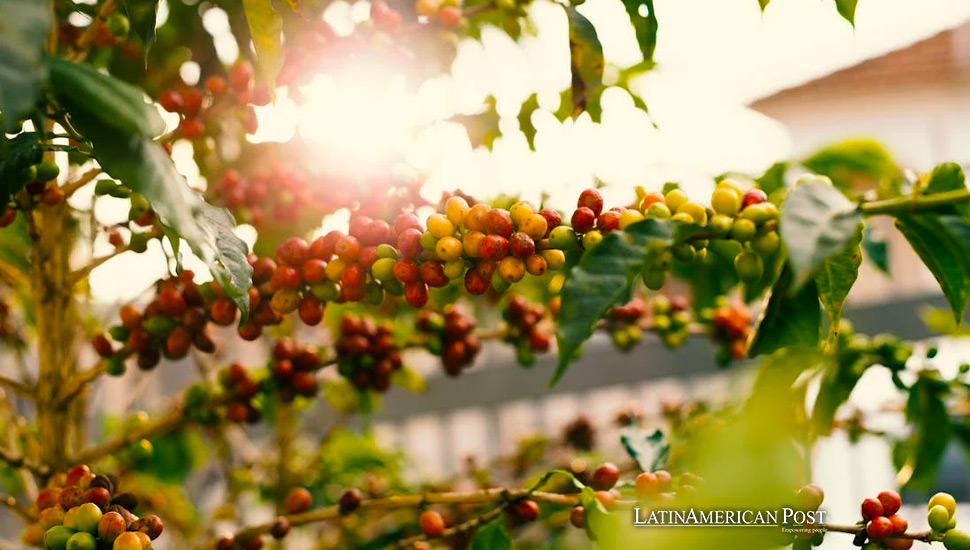Brazil’s Coffee Surge: Echoes of Latin America’s Agrarian Shift

Brazil’s unprecedented third consecutive annual increase in coffee production heralds a significant shift in agrarian practices, challenging the traditional biennial cycle and reflecting a broader transformation within the Latin American coffee sector towards resilience and innovation.
Brazil’s coffee industry stands on the brink of a historic achievement. It is poised to record its third consecutive year of production increase, a phenomenon seen only seven times in the 144-year history of coffee cultivation. As the world’s premier coffee producer and exporter, Brazil’s trend-bucking production surge offers a window into the dynamic shifts and resilience within the global coffee sector.
Traditionally, Brazil’s coffee production has been characterized by the arabica biennial cycle, where lower-yield ones follow high-yield years. However, the pattern has shifted, mainly due to the robusta variety’s expanding footprint. Robusta coffee, primarily used in instant coffee production, is becoming increasingly significant in Brazil’s coffee landscape, which is traditionally dominated by arabica, the choice bean for specialty cafes.
Impact of Climate on Coffee Production
Brazil’s recent coffee production history has been shaped by climatic adversities, including severe droughts and unprecedented frosts around 2020 and 2021, which devastated coffee fields. These events disrupted the usual production cycles and led to innovative agricultural responses, including advanced pruning techniques and the expanded use of irrigation, especially in robusta cultivation areas.
The surge in robusta production is at the heart of Brazil’s coffee boom. Unlike arabica, robusta plants are less affected by biennial production fluctuations. They are more resilient to frost, attributes that have contributed to the stabilization and growth of Brazil’s overall coffee output. Regions like Espirito Santo, Bahia, and Rondonia, which predominantly grow robusta, have become increasingly vital to the country’s coffee industry. At the same time, traditional arabica strongholds like Minas Gerais and Sao Paulo face the challenges of climate variability.
Technological Advances and Agricultural Practices
The transformation in Brazil’s coffee sector is also a testament to the technological advancements and improved farming practices adopted in recent years. These innovations have led to a significant increase in yield per hectare, with robusta production seeing a 50% increase in average yield over the past decade. In contrast, Arabica fields experienced a more modest yield increase of 24% in the same period.
The prospect of Brazil achieving four consecutive years of coffee production increase is rare, last witnessed between 1989 and 1992. This potential milestone reflects the evolving dynamics of Brazil’s coffee industry and its growing influence on the global coffee market.
Latin American Context and Global Implications
Brazil’s coffee production narrative is part of a larger Latin American context, where countries like Colombia, Honduras, and Guatemala also play significant roles in the global coffee industry. The region’s coffee production is intricately linked by shared climatic challenges, market dynamics, and a collective heritage of coffee cultivation that transcends national borders.
As Brazil and other Latin American countries navigate the complexities of the coffee market, the focus on sustainable and environmentally friendly practices becomes increasingly crucial. The global coffee industry is keenly watching how Brazil’s strategies for coping with climate change, enhancing productivity, and ensuring economic viability for coffee farmers will shape the future of coffee production in the region and beyond.
Also read: IATA Challenges Brazil on High Jet Fuel Costs, Seeks Change
Brazil’s unprecedented trajectory in coffee production is a national achievement and a reflection of broader trends in the global coffee industry. The country’s ability to adapt, innovate, and thrive amidst climatic and market challenges is a model for coffee-producing nations worldwide. As Brazil continues to break historical records and redefine its coffee legacy, the global community remains attuned to the lessons and insights emerging from this coffee powerhouse.




